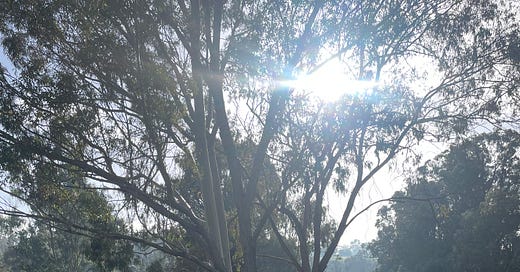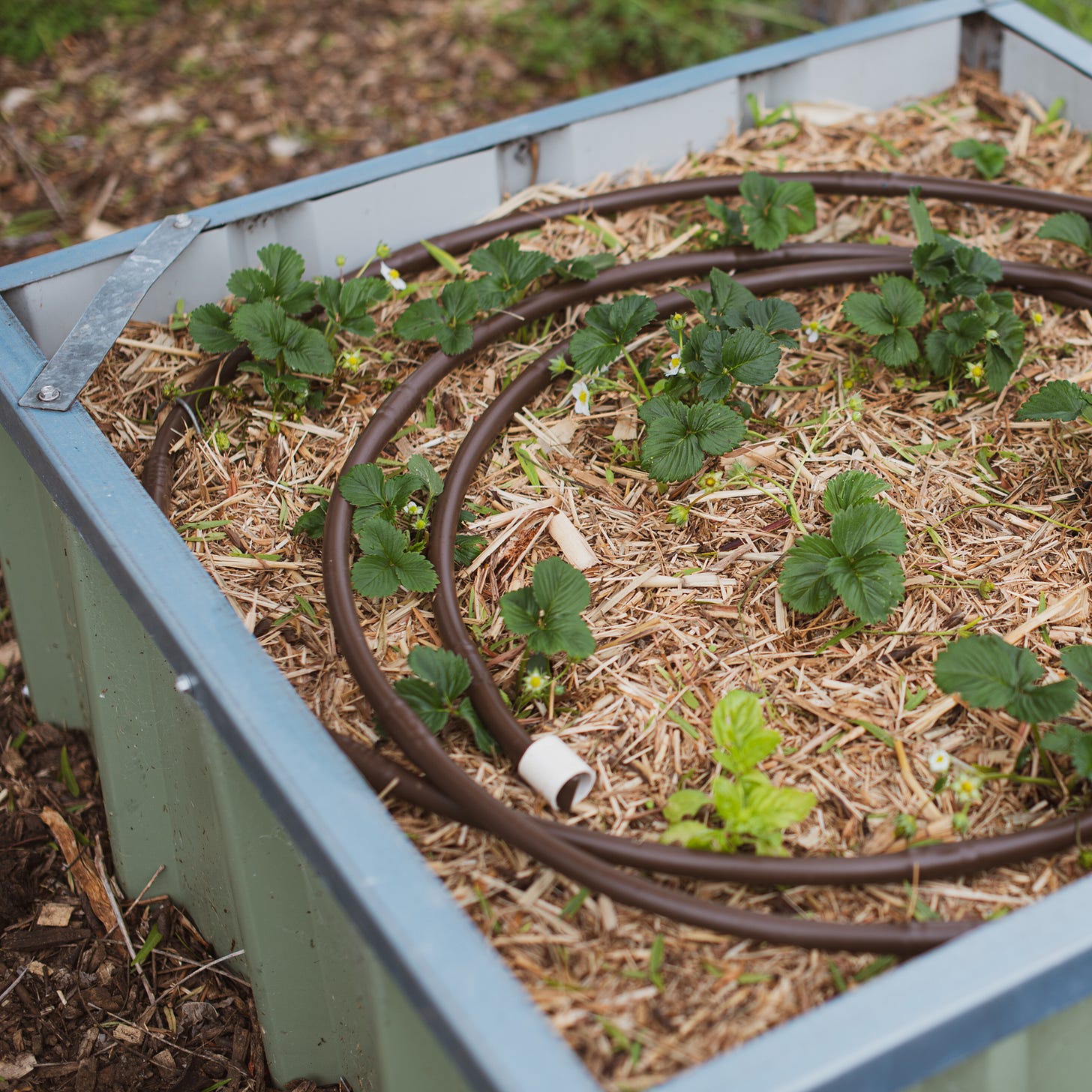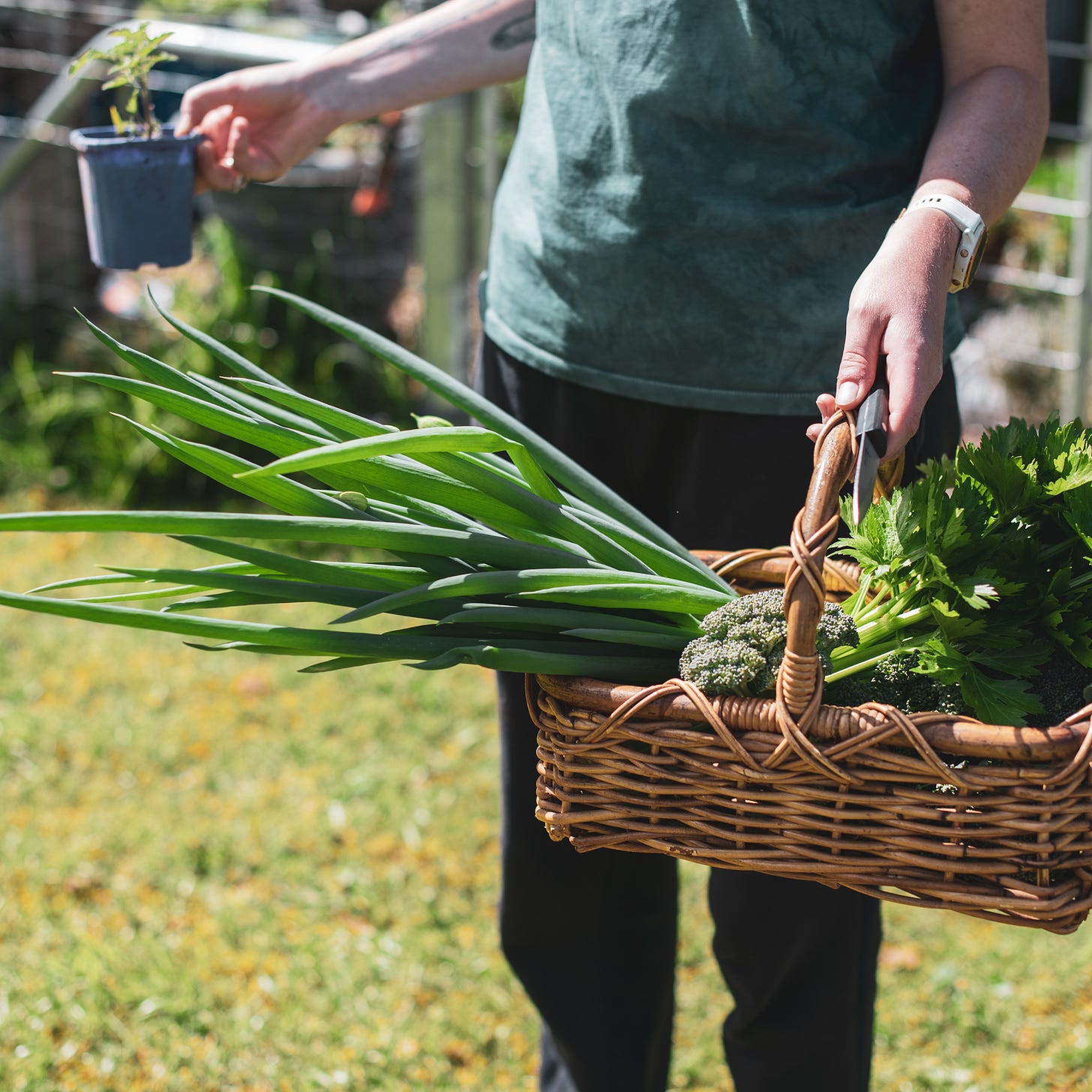Sometimes I do too much. I’m well aware, and if you’ve ever had a chat with me, you’d be aware how much I dislike the ‘grindset mindset’ attitude of my generation. It’s a challenging dichotomy, but what’s that old saying? Do what you love, never work again yada yada yada. I’m convinced that hopeful axiom is a ploy by our capitalist overloads to scam us into believing you can and should love your job, so you’ll do it with unwavering loyalty until you die. You know, out of love.
Anyway, I guess my point is, I do a lot because there’s a lot to do, and I enjoy most of the things I do - whether they make me any money or not. Writing and looking after a hobby farm in particular are both flexible pursuits. If I don’t want to do it, I don’t have to. When it comes to the farm, however, I find myself motivated to be productive. A Saturday spent working on projects big and small brings me quite a bit of satisfaction, especially when there’s a noticeable improvement at the end of it.
For me, a day on the farm feels like it’s entirely at my pace. There’s no start or finish time. There isn’t anyone else’s agenda to worry about, or a boss concerned with efficiencies and return on investment. A full day ‘on the tools’ usually includes a few coffees up until about 2pm, then maybe a beer here or there after that. If the football or cricket is on, an interlude is certainly permitted. Sunday nights usually involve crashing and burning to mindless television with a wine in hand.
We’re now in the thick of winter. We’ve rapidly gone from a spectrum of yellows and browns to greens of every shade. In summer there’s regular checkups on the sheep, topping up their water and checking for health issues; there’s a persistent nervousness that the animals are struggling (did you know chickens pant?) and fire is imminent, and every step is heavily trodden as to alert potential slithering guests that you’re nearby - this year I spotted two snakes and that kept me well topped up on anxiety for the season.
But now its August, and very quickly we’ve entered the wet season. We live, effectively, in a flood zone. It’s strange to imagine but there’s reminders plastered around Nannup of the 100-year flood of 1982 that submerged 50 houses across the town. Our home, built in 1911, is situated on the top of a hill and those flood waters allegedly lapped against the back door. Last winter, we saw some indication of how quicky water can rise in the area. While we were at no risk of property loss, a good portion of our paddock was submerged in water and the boundaries of the Nannup Brook running through our farm very quickly widened with a few solid days of rain.
Anyway, winter is a good time to keep busy around the farm. The repercussions of working in the rain are less concerning than those from overworking in the summer heat. It’s cool and the ground is soft. There’s a lot of time spent mowing and weeding but then there’s no watering and less pressure to harvest. Currently I’m destroying the remainder of our bramble problem, mapping out fencing, pruning and chainsawing, and burning when the weather permits. There’s also firewood to collect/split etc., chooks to be fed and small, annoying maintenance jobs, too.
Of course, among all of that there’s a bit of writing, too - including this little harangue!
Most days end with an inevitable ‘what are we doing for dinner?’ conversation. Living in a town of 900 people leaves you limited in your options. On a weekend, I could count the dining out options on half a hand. Thankfully, there’s a veggie garden and a well-stocked pantry, so on most ordinary days its cooking at home with whatever is around. We don’t eat much meat (we try to source good local proteins) or seafood (we don’t live near the ocean) and while a supermarket trip is occasionally needed, we limit buying either from them. So often, there’s quite a few vegetables on the plate alongside a carbohydrate; curries and pasta feature regularly as do bowls of rice topped with odds and ends, and plenty of eggs. Sometimes boring but always satisfying.
It’s always interesting chatting to people about living on a ‘farm’. Most people imagine a huge, sprawling property of hundreds of acres, though ours is just a 5-hectare hobby farm. ‘What do you do with it?’ is always asked, and I always reply, ‘we enjoy it'. I often talk to people who reckon they couldn’t do it, but you evolve to want to do it, and you find a groove. When we bought this property, I fancied myself a pretty busy guy who wouldn’t have too much time to work on it without quitting my job. Over time, priorities and circumstances shifted, it’s the same 24 hours but they just look a bit different.
Some days the last thing you want to do is work on your farm, so you don’t. The beautiful thing is that the property - and the job you didn’t do - will still be there tomorrow.






